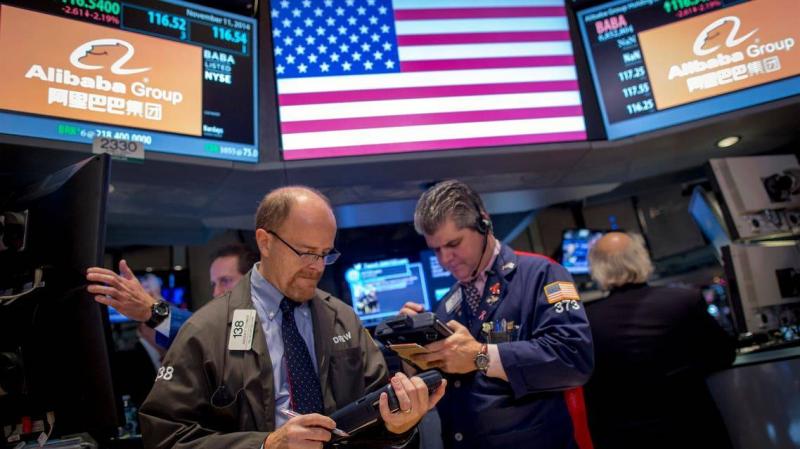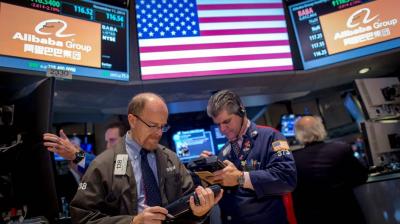Robinhood Markets' shares have risen after attracting a few new fans on Wall Street who praised the company's unique position. At least eight analysts on Wall Street have begun covering the stock, based on FactSet data. The analysts focused on the company’s opportunity to expand beyond stock trading into banking services and other functions as a comprehensive financial app. Analyst Dan Dolev from Mizuho wrote in a note to clients, "With 22.5 million active users and capturing 50% of all new retail accounts in the US, we don’t view Robinhood as a meme stock phenomenon, but as a unique entity that embodies the spirit of Generation Z," according to Market Watch, which was reviewed by Al Arabiya.net.
The term "meme stocks" refers to stocks that attract interest from young people and small investors and are characterized by high price spikes. Dolev noted that Robinhood’s exposure to options is "less dramatic than feared," which he suggested should address investor concerns about whether Robinhood's user base is more speculative than it is invested. He argued that the company is less exposed to meme stocks and "homogenous" trading trends than some investors might fear. He continued, stating, "Offering a single app with features like banking, discount, credit, and other capabilities represents a significant future opportunity for Robinhood in our view."
The market size that could shift to banking accounts in the US is estimated to be around 500 million accounts, suggesting that Robinhood currently serves less than 5% of its potential customer base. Adding new products and services could help Robinhood double its average revenue per user over time, according to Dolev, who initiated coverage with a buy rating and a price target of $68.
Sean Horgan, a securities analyst at Rosenblatt Securities, wrote that investors seem to misunderstand Robinhood's story. He added, "We believe that Robinhood’s offering, in the context of traditional online brokers, is lacking and overlooks the opportunity for it to capture a significant share of primary banking accounts in the US." Horgan also noted that "the indicators are heavily skewed towards a bullish stock direction." He is optimistic about Robinhood's potential to capture a substantial portion of the US consumer banking services revenue, which is valued at $140 billion.
He compared the company to several well-known names in the tech world, such as Apple, stating that Robinhood has a valuable user interface because its "uncluttered, intuitive, and non-intimidating platform makes it easy for first-time investors to enter trading." Like the Square app, the company has a "highly interactive" user base that experiments with "high-touch products like stock/crypto trading," which Robinhood can ultimately translate into new monetization opportunities. The company has already launched a cash management feature that gives users Robinhood debit cards.
Although Barclays analyst Ross Sandler voted on the attractiveness of the Robinhood app, he was not ready to jump on the bull train. His equal-weight rating reflects "distrust in the outlook and regulatory uncertainty." Sandler pointed out that "the vast majority of Robinhood's revenue is derived from the heavily scrutinized practice of payment for order flow" and explained that "simply put, revenue is earned when brokers like Robinhood receive fees for routing trades to market makers instead of direct exchanges." The stock has risen 28.7% since it closed at $34.82 on its first trading day on July 29, while Bitcoin's price increased by 24.0% and the S&P 500 index fell by -1.72% during the same time.




